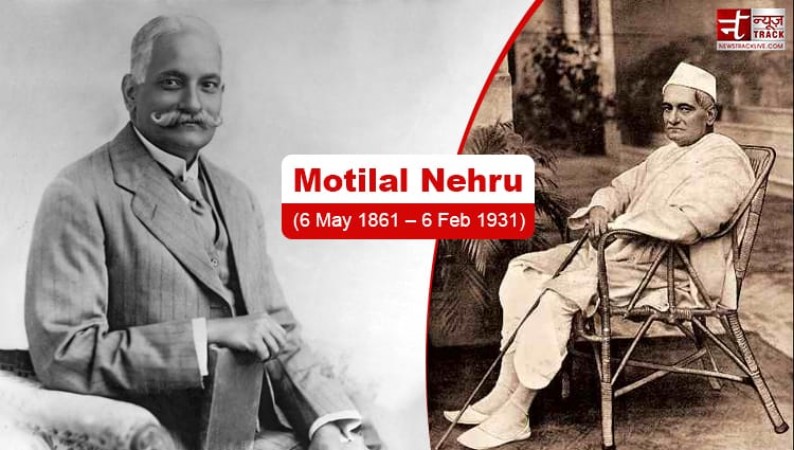
Motilal Nehru (6 May 1861 – 6 February 1931) was an Indian lawyer, activist, politician, and the father of India’s first prime minister, Jawaharlal Nehru.
Motilal Nehru made his name as a popular Indian lawyer. Along with this, he was a veteran activist in the Indian Freedom Movement and also a pioneer of the Indian National Congress. He became the President of the Congress party twice. A major thing that needs special mention is that Motilal Nehru is considered the founder of the well-known Nehru-Gandhi family. He died on 6 February 1931.
Birth, Childhood & Education: In Motilal Nehru was born in a Kashmiri Brahmin family in Delhi. His parents were Jeevarani and Gangadhar. By the time of Motilal's birth, his father had already died away. It was Nandalal, Motilal’s elder brother, who brought him up. They first lived at Khetri, which at the time belonged to the princely state of Jaipur. Nandalal served as the state's Diwan. However, he eventually quit his job and began practising law in Allahabad.
Motilal Nehru received a quality education. After graduating from Kanpur, he continued his education at Muir Central College in Allahabad. Motilal was among the first generation of Hindus to be fortunate enough to acquire a Western-style college education because it was not that popular in those days. He was unable to take the last B.A. exam, though. He took the bar exam due to his interest in the law, and as a result, he received a "Bar at Law" from the University of Cambridge. He began practising law in Kanpur after passing the bar exam in 1883 before moving to Allahabad.
Profession and Daily Life: Motilal Nehru had a very prosperous law firm. Anand Bhavan is the name of the magnificent home he purchased in Allahabad's Civil Lines. His career peaked in 1909, the year he was granted permission to appear before the British Privy Council. He had to travel to Europe frequently and was heavily impacted by Western culture.
He served as both the first Chairman and a member of the Allahabad-based daily "The Leader". He served on the primary Board of Directors as well. He launched The Independent, his own newspaper, in 1919.
Political Career: The 1919 Jalianwala Bagh tragedy in Amritsar broke Motilal Nehru's views against British governance. Mahatma Gandhi had also a significant influence on Motilal Nehru's outlook on life and values. Gandhiji helped him understand the significance of "Swadeshi," which Motilal embraced wholeheartedly. The Congress established an inquiry commission after the terrible Jalianwala Bagh tragedy, with Motilal Nehru, Mahatma Gandhi, and Chittaranjan Das serving as its principal members. Motilal was elected president of the Indian National Congress in 1919. Additionally, he played a significant role in the Non-Cooperation Movement. Despite being extremely close to Gandhiji, he openly disagreed with Gandhiji's decision to end civil resistance in 1922.
In the history of Indian Independence, the formation of the Swaraj Party in 1923 by Deshbandhu Chittaranjan Das was significant. After winning the elections to lead the opposition in the Central Legislative Assembly, Motilal Nehru assumed the roles of President and Secretary of the Swaraj Party. He fiercely disagreed with the judgements made under British administration.
The question of giving India full Dominion status came up in 1926–1927, but the Assembly rejected it. Following this, Motilal rejoined the Congress and was re-elected as its President in 1928.
Jawaharlal Nehru – Motilal’s Son: A new chapter in Indian history was added with the entry of Jawaharlal Nehru, Motilal's well-educated and flamboyant son. In 1916, he entered politics. Motilal transferred his son to the presidency in 1929. Gandhiji supported the choice, and it went down in Indian history.